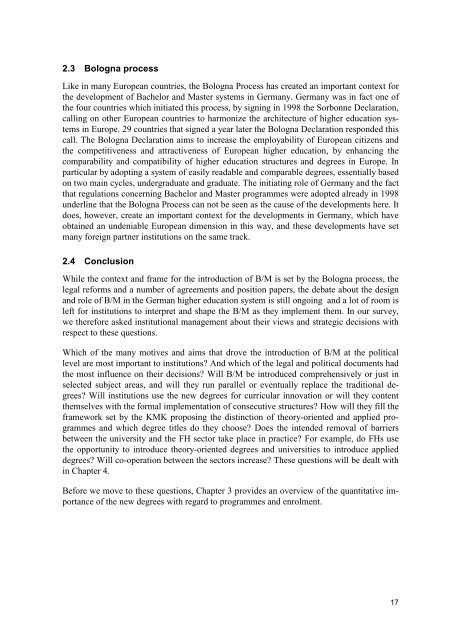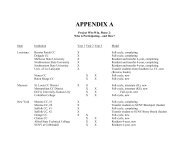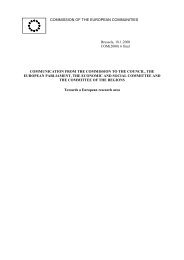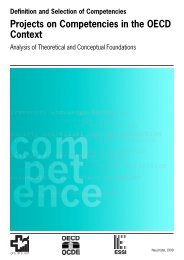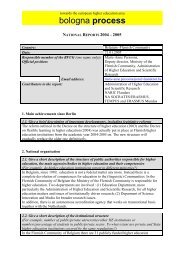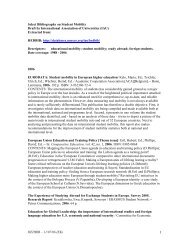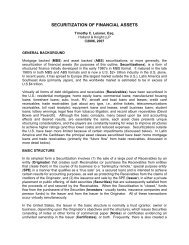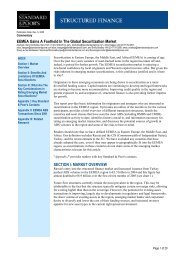and Master Programmes in German Higher Education Institutions
and Master Programmes in German Higher Education Institutions
and Master Programmes in German Higher Education Institutions
- No tags were found...
You also want an ePaper? Increase the reach of your titles
YUMPU automatically turns print PDFs into web optimized ePapers that Google loves.
2.3 Bologna processLike <strong>in</strong> many European countries, the Bologna Process has created an important context forthe development of Bachelor <strong>and</strong> <strong>Master</strong> systems <strong>in</strong> <strong>German</strong>y. <strong>German</strong>y was <strong>in</strong> fact one ofthe four countries which <strong>in</strong>itiated this process, by sign<strong>in</strong>g <strong>in</strong> 1998 the Sorbonne Declaration,call<strong>in</strong>g on other European countries to harmonize the architecture of higher education systems<strong>in</strong> Europe. 29 countries that signed a year later the Bologna Declaration responded thiscall. The Bologna Declaration aims to <strong>in</strong>crease the employability of European citizens <strong>and</strong>the competitiveness <strong>and</strong> attractiveness of European higher education, by enhanc<strong>in</strong>g thecomparability <strong>and</strong> compatibility of higher education structures <strong>and</strong> degrees <strong>in</strong> Europe. Inparticular by adopt<strong>in</strong>g a system of easily readable <strong>and</strong> comparable degrees, essentially basedon two ma<strong>in</strong> cycles, undergraduate <strong>and</strong> graduate. The <strong>in</strong>itiat<strong>in</strong>g role of <strong>German</strong>y <strong>and</strong> the factthat regulations concern<strong>in</strong>g Bachelor <strong>and</strong> <strong>Master</strong> programmes were adopted already <strong>in</strong> 1998underl<strong>in</strong>e that the Bologna Process can not be seen as the cause of the developments here. Itdoes, however, create an important context for the developments <strong>in</strong> <strong>German</strong>y, which haveobta<strong>in</strong>ed an undeniable European dimension <strong>in</strong> this way, <strong>and</strong> these developments have setmany foreign partner <strong>in</strong>stitutions on the same track.2.4 ConclusionWhile the context <strong>and</strong> frame for the <strong>in</strong>troduction of B/M is set by the Bologna process, thelegal reforms <strong>and</strong> a number of agreements <strong>and</strong> position papers, the debate about the design<strong>and</strong> role of B/M <strong>in</strong> the <strong>German</strong> higher education system is still ongo<strong>in</strong>g <strong>and</strong> a lot of room isleft for <strong>in</strong>stitutions to <strong>in</strong>terpret <strong>and</strong> shape the B/M as they implement them. In our survey,we therefore asked <strong>in</strong>stitutional management about their views <strong>and</strong> strategic decisions withrespect to these questions.Which of the many motives <strong>and</strong> aims that drove the <strong>in</strong>troduction of B/M at the politicallevel are most important to <strong>in</strong>stitutions? And which of the legal <strong>and</strong> political documents hadthe most <strong>in</strong>fluence on their decisions? Will B/M be <strong>in</strong>troduced comprehensively or just <strong>in</strong>selected subject areas, <strong>and</strong> will they run parallel or eventually replace the traditional degrees?Will <strong>in</strong>stitutions use the new degrees for curricular <strong>in</strong>novation or will they contentthemselves with the formal implementation of consecutive structures? How will they fill theframework set by the KMK propos<strong>in</strong>g the dist<strong>in</strong>ction of theory-oriented <strong>and</strong> applied programmes<strong>and</strong> which degree titles do they choose? Does the <strong>in</strong>tended removal of barriersbetween the university <strong>and</strong> the FH sector take place <strong>in</strong> practice? For example, do FHs usethe opportunity to <strong>in</strong>troduce theory-oriented degrees <strong>and</strong> universities to <strong>in</strong>troduce applieddegrees? Will co-operation between the sectors <strong>in</strong>crease? These questions will be dealt with<strong>in</strong> Chapter 4.Before we move to these questions, Chapter 3 provides an overview of the quantitative importanceof the new degrees with regard to programmes <strong>and</strong> enrolment.17


